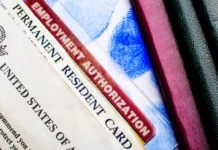Judicial Watch announced on Wednesday it filed an opposition to the Justice Department’s request to the court for an additional month to decide whether to produce audio/video recordings of the special counsel interview of President Biden. Currently, the Justice Department is supposed to let the court and Judicial Watch know its position on releasing the recordings on April 30. But the agency just asked the court for at least one more month (May 27 or later) to state its position on whether it is going to release any recordings.
On March 11, 2024, Judicial Watch filed a Freedom of Information Act (FOIA) lawsuit against the U.S. Department of Justice in the U.S. District Court for the District of Columbia after the Department of Justice failed to respond to a February 2024 FOIA request for records of all special counsel interviews of President Biden (Judicial Watch, Inc. v. U.S. Department of Justice (No. 1:24-cv-00700)). A redacted transcript of the Biden interview was released on April 15.
On February 5, 2024, Special Counsel Robert Hur issued the “Report of the Special Counsel on the Investigation Into Unauthorized Removal, Retention, and Disclosure of Classified Documents Discovered at Locations Including the Penn Biden Center and the Delaware Private Residence of President Joseph R. Biden, Jr.”
In the report, Hur called Biden a “well-meaning, elderly man with a poor memory” and declined to charge Biden with a “serious felony:”
We have also considered that, at trial, Mr. Biden would likely present himself to a jury, as he did during our interview of him, as a sympathetic, well-meaning, elderly man with a poor memory. Based on our direct interactions with and observations of him, he is someone for whom many jurors will want to identify reasonable doubt. It would be difficult to convince a jury that they should convict him-by then a former president well into his eighties-of a serious felony that requires a mental state of willfulness.
Prior to the finalization of the report, the White House issued a letter to the Special Counsel’s office attacking the report’s “treatment of President Biden’s memory,” and added “there is ample evidence from your interview that the President did well in answering your questions …”
Judicial Watch argues:
This case could not be any more straightforward, and [the Justice Department] cannot and does not provide any substantive reasons why an extension of time is necessary at this time…. Judicial Watch, along with other media organizations as well as Congressional committees, have sought these materials to enable the public to form its own conclusions about the Special Counsel’s characterizations of President Biden’s testimony.
***
[The Justice Department] can alleviate any administrative burden by informing Judicial Watch and the Court whether it intends to produce the recordings. If it produces the recordings, the case is over.
“The Biden Justice Department is trying to help Joe Biden politically by hiding the recordings of his special counsel interviews,” said Judicial Watch President Tom Fitton. “The recordings of the Biden interview are essential to the public interest in obtaining information about any presidential misconduct, crimes, and cognitive challenges.”
Judicial Watch has several ongoing FOIA lawsuits about Biden’s document scandals and the related unprecedented partisan prosecutorial and judicial abuses of former President Donald J. Trump.
















